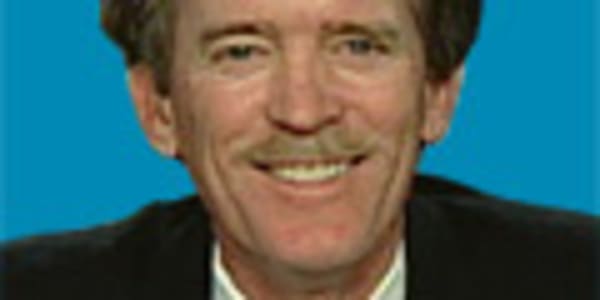Terry McGraw
Chairman, The Business Roundtable
Harold “Terry” McGraw III is a man of many opinions, and his ascension to chairman of The Business Roundtable in August 2006 gives him another platform to share them with business and political leaders. Not that McGraw needed the job at the think tank, which includes CEOs from 160 of the biggest U.S. companies: he's also chairman, president and CEO of The McGraw-Hill Companies, the publishing and financial services founded by his great-grandfather. McGraw is a spirited advocate of free trade, global competitiveness, corporate governance and health care reform.
In cnbc.com’s OUTLOOK '07 series, McGraw spoke with CNBC’s Liz Claman about what developments 2007 might hold. Here are some excepts:
Immigration And High Tech
“We need to access foreign talent,” says McGraw, who says the U.S. needs to dramatically increase the number of visas for foreign-born, high-tech workers. “Companies are going offshore to align themselves with where the talent is. At the same time, McGraw says the U.S. needs to strengthen its resolve and initiative in improving science and math skills.
Sarbanes-Oxley
McGraw says the legislation meant to tighten accounting and reporting standards “wasn’t necessary, but business earned it.” Though the law that grew out of the corruption scandals of the turn of the century has brought cries for relief, McGraw says the new Congress will enact some reform measures, but “there won’t be a lot of change to it.”
Congressional Agenda
McGraw is hopeful about Congress and business finding more “common ground,” and says “better communication” is needed. In terms of key agenda items, he singled out a free trade agreement with Vietnam and a research-and-development tax break.
Energy
“Eventually, we’re going to have to get nuclear," says McGraw, in addressing an inevitable energy crunch, driven by the U.S. economy’s endless consumption of crude oil oriented products. He also supports other alternative fuels such as solar, wind and hydrogen, but they’re “not sufficient.” The public may be concerned about safety and other issues relating to nuclear energy but “we have to manage it."




